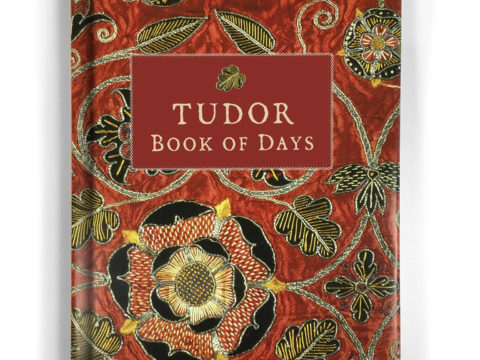John Dudley: Life Story
Chapter 6 : Diplomacy
In February 1537, the King’s eldest daughter, the Lady Mary, gave a tip of 7s 6d to Lady Dudley’s nurse. According to the accounts, the Princess had stood as godmother at the ‘bishopping’ or confirmation that was carried out immediately after the christening. The child must therefore have been a girl. Strangely, in March of the same year, the Princess also gave a tip of 11s 3d to Lady Dudley’s midwife, and a further 20s to her nurse on the birth of a son, to whom she stood godmother. It is possible that the Dudleys had twins, although there is nothing to indicate which of their children are referred to.
A further tip of 5s was given to the nurse in April 1537 and April 1538, suggesting that the Dudleys and Lady Mary were on close visiting terms.
Gifts of food, and particularly of deer, were an important element of patronage and in July 1537, Dudley sent five bucks to Cromwell. To send so many carcases was highly unusual, and Cromwell’s man, Richard Tomyow, was extremely surprised – wondering if Dudley thought there was some important business on hand that Cromwell could help with, but could not imagine what.
Tomyow was the less impressed as two of the bucks were ‘so utterly gone’ that he was glad to have them out of the house – quartering them and giving the quarters to any of Cromwell’s men who would take them away. The other three, slightly fresher, were immediately cooked, but Tomyow thought the waste a great pity.
During the summer and early autumn, Dudley continued to patrol the coast, sometimes with Seymour, and other times with Sir George Carew. Their main task was to find pirates. On 18th August, he wrote to Cromwell of his and Carew’s disappointment that they had been at sea so long, without having achieved much. They had taken a Breton ship, although it carried little, and the Master of Carew’s ship was now refusing to put to sea again as the craft was leaking badly, and he feared the autumn storms.
Dudley was back at the Needles by 21st August, and received orders to proceed to London as soon as the wind served. En route, he encountered two more Breton craft, allegedly lying in wait to despoil two ships due to pass through the Channel from Cornwall. Dudley took the Breton ships, convinced they were pirates, and had them sailed up to the Thames. Once he had arrived in the Thames, Dudley was to be paid off for the tour of duty, and the ordnance on his ships returned to the Tower and other storage.
Queen Jane performed her duty in October 1537, presenting Henry with a son at last. After taking part in the christening, Dudley was commissioned to travel to Spain to inform the Emperor of the good news. As England and France were on good terms, his instructions were to travel overland. He landed at Boulogne, where he was greeted by requests from various Bretons whose ships he had impounded for piracy, for compensation. Because England and France were at peace, the Captain of Boulogne took Dudley’s part in a manner which Dudley thought too severe – ‘and beat them with his sword that it would have pitied a man to have seen it, and caused them to be put into a dungeon within the castle’.
Dudley did not have any audience with the French King, who was away from Paris. He arrived at Charles’ court on 15th November. Charles was, of course, all courtesy. Glad to hear of the birth of Prince Edward, and only wishing that the child had been born of his aunt Katharine – although he had the highest respect for Queen Jane.
After giving the Emperor the details of Edward’s good health and his christening, Dudley proceeded to discharge the second part of his instructions – Henry’s disappointment that he had not taken advantage of Henry’s offers for mediation with France. In reality, Henry’s desire to mediate between Francois and Charles was to muddy the waters between them to his own benefit.
The ambassadors then discussed the General Council of the Church which had been mooted for some years. Henry was refusing to send delegates if the Bishop of Rome (as he termed the Pope) were to be present. Charles suggested that the English presence might heal a sickness, at which Dudley and Wyatt responded huffily that they did not feel England to be sick at all – rather cured of a long sickness (subservience to Rome). Charles hastily responded that he had meant Henry might help cure sickness in the Church at large.
The following day, Dudley and Wyatt had audience with Granvelle, Charles’ Chancellor, who repeated the Emperor’s previous offers to mediate between Henry and the Pope, for which he was thanked, because the ambassadors thought Henry would appreciate the kind intention, although such mediation was quite unnecessary.
After some time at the Imperial court, during which he secured a verbal promise from the Emperor to include Henry in any treaty with Francois, Dudley returned, via France. He was detained at Lyons by the French Council, with no grounds given, except that King Francois had ordered that all couriers be detained until he had been informed of their presence and had decided whether or not to see them. Francois’ actions may have been to slow down Dudley’s report on the advancing negotiations between himself and Charles or to punish Henry mildly for sending an envoy without the courtesy of including a visit to the French king.
Before Dudley had departed for Spain, Lady Mary gave him 40s to make some unspecified purchases, again suggesting he was on good terms with the King’s daughter.
Sir John Dudley
Family Tree




